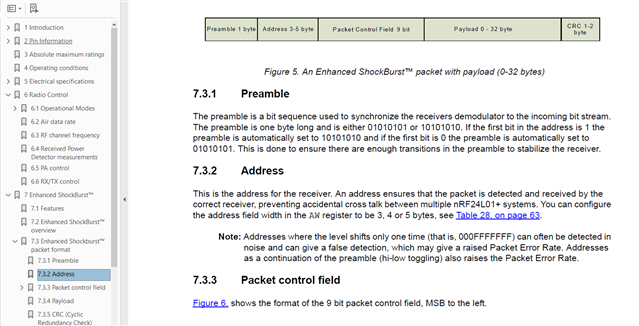Hello,
We are using NRF24L01 as a transreceiver. We have a network of NRF devices operating individually and we want one NRF to communicate only with its respective NRF. However the data collision happens during this. The NRFs in the network also receives this data despite keeping the different frequency.
We cant have multiple frequencies for our every product.
So, is there any way to avoid data collision / interference so that only 2 desired NRF will communicate with each other and other NRF devices in the network wpn't get that data ??
Thanks and Regards ,
Harshal



